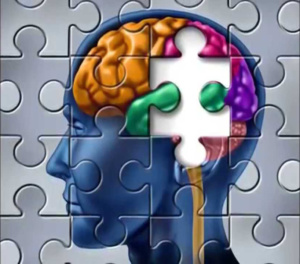Occupational Therapy for Cognitive Disorders

Cognitive defined as information and processing functions of the brain, including attention, memory, and executive functions (i.e., planning, problem-solving, structural capacity, and self-awareness).
It is a series of complex thought processes by which we come to know and act on our environment, to benefit from past experiences, and to generate new ideas to advance our existence. Cognitive processing spans a wide range of activity and input. It can involve multiple sensory inputs from the external environment. Meta cognition defined as knowing about knowing, is the ability to know and monitor. The assessment and remediation of cognitive disorders can be challenging and complex.
Cognitive functions include Attention, Memory, Initiation, Planning, Organization, Abstraction, Insight, Reasoning, Problem-solving, Executive function, and Judgment.
COGNITIVE IMPAIRMENT CAN LEAD TO PROFOUND FUNCTIONAL LIMITATIONS.
Cognitive impairment often follows are included
- Environmental deprivation, fetal alcohol syndrome, learning disabilities, pervasive developmental disorders)
- Neurological disease, injuries, and disorders (e.g., stroke, traumatic brain injury (TBI), Parkinson’s and Huntington’s diseases, HIV/AIDS, Alzheimer’s disease and related major neurocognitive disorders (dementias), rheumatoid arthritis, diabetes, lupus, Lyme disease, multiple sclerosis, chronic fatigue syndrome, chronic obstructive pulmonary disease, cardiac and circulatory conditions)
- Psychiatric conditions (e.g., schizophrenia, major depressive disorder, bipolar disorder, substance use disorders)
- stress-related disorders, pain syndromes, and anxiety disorders
Mostly cognitive impairment often caused by injury, frequently TBI. There are 1.7 million such injuries every year in the United States, of which 75% are concussions or mild TBI.
An occupational therapist is addressing the effects of cognitive deficits on daily life. Using a client-centric approach, they work with the client, family, and involved others to set collaborative goals and intervention priorities. Cognitive abilities play an important role in basic daily activities or BADL such as brushing, bathing, grooming, dressing, self-hygiene and that progress to more difficult activities such as driving, cooking, going off shopping, and returning to work. They may use one or more of the following approaches depending on the needs and personal preferences of the client.
OCCUPATIONAL THERAPY TREATMENT OF SPECIFIC DEFICIT AREAS:
Remedial and Adaptive Approaches: The remedial approach focuses on improving awareness of cognitive processes and assisting clients to develop their compensatory approaches (e.g., planning and meta processing strategies) to function as safely and independently as possible. Remedial Therapy also improves attention, memory, language, and executive function.
Global Strategy Training: Global strategy trainer focuses on teaching clients to manage specific perceptual or cognitive deficits (For example, driving a vehicle, an individual need to process a continuous stream of information from the environment).
Cognitive Retraining in Functional Activity: In cognitive retraining, technology has provided additional options for remediation and compensation of cognitive deficits. In the work-oriented task, the computer can be programmed to monitor, cue, and organize an individual’s output. Addressed within the context of the activity (e.g., attention retraining during driving reeducation).
Dynamic Interaction Approach: Strategies to improve performance across the cognitive spectrum and practiced in multiple environments to increase the likelihood of transfer with a variety of tasks.
Rehabilitative Approach: According to this approach independent the client through environment modifications and simplifications of components using the assertive and adaptive device. The process of occupational therapy intervention involves addressing the complexity of what the client needs to do and altering environmental contexts to enhance the interaction between the client’s abilities and environmental demands.
Treatment for Deficits in Executive Function
A person with relatively good meta cognition skills, one who can recognize, comprehend, and appreciate the implications of inactivity, may be responsive to self-monitoring strategies or environmental cues. A more severely impaired individual, one who can not acknowledge or tends to devalue the deficit, may require supervision by another individual
Treatment for Behavioral Deficits
Self-estimation can be encouraged by asking questions requiring an individual to predict performance in a certain task.
Behavioral management strategies can be developed to impose restrictions on individuals behavior. A group approach can also be useful for providing feedback from peers. Videotaping will provide a visual record of behavior that can be discussed with the person.
An occupational therapist will provide treatment according to the problems in cognition across all health care settings, including acute care, rehabilitation centers, outpatient facilities, the home, community rehab settings, and pediatric setups.
The field of cognition in neuroscience is ever-changing as new mechanisms are developed to explore, image, and understand the complexity of the brain.
Check out these links for relevant information : Occupational therapy, speech therapy
For more details contact
us on 📞9618906780
